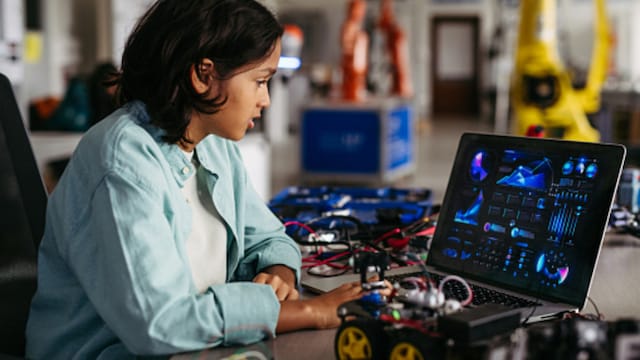In a quiet but radical shift that could redefine classroom learning in India, the southern state of Kerala has become the first in the country to make robotics education compulsory for students in Class 10.
The policy, set to be rolled out in the upcoming 2025–2026 academic session, marks a significant expansion of the state’s long-standing focus on digital literacy and technological inclusion in public education. It places Kerala at the forefront of a broader push to integrate 21st-century skills into India’s mainstream curriculum.
A Digital Leap in Public Education
The curriculum, designed by the Kerala Infrastructure and Technology for Education (KITE), will introduce students to the foundational concepts of robotics, automation, basic coding, and artificial intelligence through theory and hands-on practice. Schools across the state are being equipped with specialized labs and hardware kits to support the new coursework.
“We are preparing our children not just for exams, but for a world where technology will define every profession,” said a senior official from KITE. “Robotics is not just about machines—it’s about critical thinking, teamwork, and creativity.”
Teacher training programs are already underway. The state plans to upskill more than 10,000 instructors to implement the syllabus, ensuring it is not only introduced in name, but taught with depth and clarity.
Setting a National Precedent
While robotics education has been introduced in select private institutions and elite urban schools across India, Kerala’s move to mandate it across all government and aided schools is unprecedented.
Educationists believe the decision aligns with the National Education Policy (NEP) 2020, which calls for experiential learning and emphasizes skills like problem-solving, computational thinking, and ethical use of technology.
“This move could help bridge the technological divide in India’s schooling system,” said Dr. Anjali Ramesh, an education researcher based in Delhi. “Kerala is showing that innovation doesn’t have to wait for central directives—it can come from local vision and execution.”

Why It Matters
Kerala’s education system has long been recognized for its progressive policies. From achieving one of the highest literacy rates in the country to introducing IT@School and promoting free open-source software in classrooms, the state has consistently stayed ahead of the curve.
This latest initiative comes at a time when global economies are increasingly driven by automation and AI. By introducing students to robotics at an early age, Kerala is aiming to equip the next generation with tools not only to consume technology, but to create and lead with it.
Beyond the practical applications, officials hope the course will inspire curiosity, confidence, and a culture of innovation.
The Road Ahead
Despite the optimism, challenges remain. Infrastructure gaps, varying levels of teacher preparedness, and ensuring inclusivity across rural and urban schools will test the rollout. Yet, experts say the decision is bold—and timely.
“This is no longer optional,” said an official from Kerala’s Education Department. “The future of education is interdisciplinary and tech-driven. We want our students to meet that future head-on.”
As other Indian states watch closely, Kerala’s robotics mandate may serve as a blueprint for transforming education in the digital age—one line of code, one classroom at a time.


